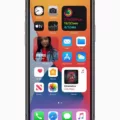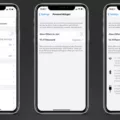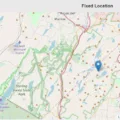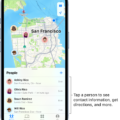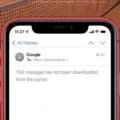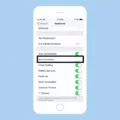Are you looking to block IP addresses on your iPhone? IP addresses are a crucial part of the web. They are used to identify devices, websites and servers so that data can be transferred between them securely. Unfortunately, this also means that malicious actors can use them to track your activity online and even gain access to your device.
Fortunately, there are ways to protect yourself from having your IP address tracked. In this blog post, we’ll explain how you can block IP addresses on your iPhone. We’ll discuss the different options available and why you should consider using them.
The first step in blocking an IP address is to go into the settings of your iPhone and select “IP Blocking” from the menu. From here, you can enter a friendly name for the range of IP addresses you would like to block and check the “Block my current IP” box if you would like to exclude your own address from being blocked. Once you have done this, tap “Add” in order to save the changes.
Another option is to turn off private addressing for a network by going into settings > Wi-Fi and tapping on the appropriate network. This will help reduce tracking of your phone across different Wi-Fi networks. Furthermore, Safari provides automatic protection for your IP address from known trackers if it is enabled in the settings menu. For eligible iCloud+ subscribers, their IP address is hidden even further when browsing through Safari.
If you would like to block websites or specific IP addresses at a person or device level then there is also an option for that too. All you need to do is navigate to the desired person or device page and select “Manage security events” at the bottom of the page beore selecting either “Block Website” or “Block IP Address” depending on what you want to achieve with this action.
By following these steps, you will be able to protect yourself from having your activities tracked online by malicious actors using various methods such as tracking your IP address or website visits. It is important that we all understand how our devices work so that we can take advantage of all of their security features in order keep ourselves safe online!
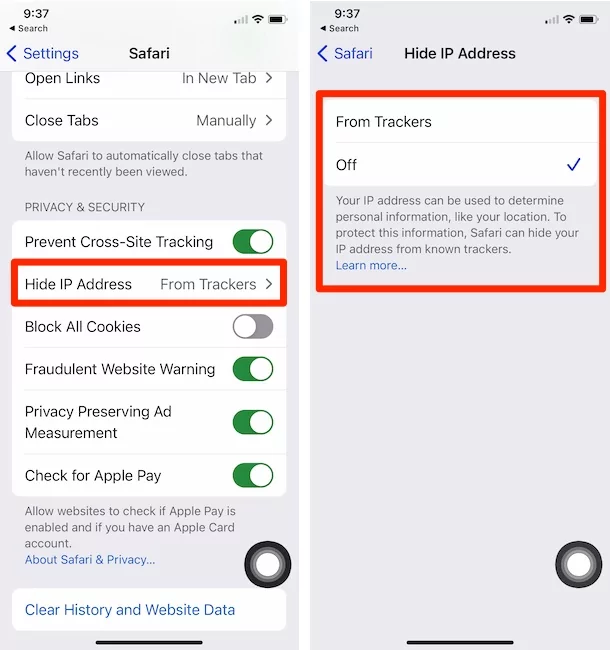
Preventing Someone from Seeing Your IP Address on an iPhone
To stop someone from seeing your IP address on your iPhone, you will need to turn off Private Address. To do this, go to Settings > Wi-Fi, then tap the network you are connected to. From here, toggle off the Private Address switch. This will help prevent tracking of your iPhone across different Wi-Fi networks and keep your IP address from being visible.
Does an iPhone Hide My IP Address?
Yes, your IP address can be hidden on iPhone. Depending on the type of device you have, there are several different methods for protecting your IP address from trackers and websites. If you’re an eligible iCloud+ subscriber, Safari can automatically protect your IP address as you browse. Additionally, you can use a virtual private network (VPN) to hide your IP address. VPNs encrypt your data and provde a secure connection between your device and the internet so that you remain anonymous online. Finally, if you’re using an iPhone with iOS 14 or later, you can enable Private Relay which hides both your IP address and browsing information from websites and ISPs.
Blocking an IP Address from a Phone
To block an IP address from someone’s phone, you will need to access the person or device’s security settings. Navigate to the desired person or device and tap on Manage security events at the bottom of the page. Go to Block and then tap on Block… on iOS or the + if you are using Android. Select Block IP Address, then enter the IP address you wish to block. Once complete, this will prevent anyne from accessing this IP address from that particular phone.
Consequences of Revealing an IP Address on an iPhone
If someone gets your IP address on iPhone, they may be able to gain some information about your geographic location, such as your city or postal code. They cold then use this information to launch targeted attacks like phishing emails that appear to be from legitimate companies. Additionally, if the hacker has access to other personal information about you, such as a birthdate or Social Security number, they could use this information to try and steal your identity or access your accounts. To protect yourself, it is important to use strong passwords and two-factor authentication on all of your accounts.
Blocking an IP Address from Being Tracked
The best way to block your IP address from being tracked is to use a virtual private network (VPN). A VPN connects your device to a secure server, encrypts all of your data, and masks your IP address so that it cannot be tracked. This proides a safe and secure internet connection that keeps your data secure and anonymous. Additionally, you can also use a proxy server to hide your IP address. However, proxies do not provide the same level of security as a VPN and are often slower than VPNs. If you have the resources available, we recommend using a VPN for optimal privacy protection.
Changing IP Address on an iPhone
Yes, you can change your IP address on iPhone. To do so, go to Settings and tap Wi-Fi. Then select the network name. In the IPv4 Address section, you will see your current IP address, the Subnet Mask, and the Router address. Once you have noted these down, tap Configure IP. Here you can enter a new IP address that you would like to use for your device. Be sure to also enter in the Subnet Mask and Router infomation as well in order to ensure that your device is able to connect to the network properly.
Conclusion
In conclusion, IP addresses are important for communication on the internet. They enable computers and other devices to find and communicate with each other. IP addresses can be blocked to protect privacy, improve security, and prevent malicious activities. Additionally, they can also be hidden in order to prevent tracking of a device across different networks. All in all, IP addresses are a key part of how the internet works and provide an essential layer of security for online activities.

